-
 Thanh toán đa dạng, linh hoạtChuyển khoản ngân hàng, thanh toán tại nhà...
Thanh toán đa dạng, linh hoạtChuyển khoản ngân hàng, thanh toán tại nhà... -
 Miễn Phí vận chuyển 53 tỉnh thànhMiễn phí vận chuyển đối với đơn hàng trên 1 triệu
Miễn Phí vận chuyển 53 tỉnh thànhMiễn phí vận chuyển đối với đơn hàng trên 1 triệu -
 Yên Tâm mua sắmHoàn tiền trong vòng 7 ngày...
Yên Tâm mua sắmHoàn tiền trong vòng 7 ngày...
Doctor's Best Betaine HCI Pepsin & Gentian Bitters, Digestive Enzymes for Protein Breakdown & Absorption, Non-GMO, Gluten Free, 360 Count (Pack of 1)
-

- Mã sản phẩm: B00H40XPH4
- (5410 nhận xét)


- Product Dimensions:2.19 x 2.19 x 4.25 inches; 10.58 ounces
- Item Weight:10.6 ounces
- ASIN:B00H40XPH4
- Item model number:DRB-00315
- Customer Reviews:4.5 out of 5 stars 5,345Reviews
- Best Sellers Rank:#10,547 in Health & Household (See Top 100 in Health & Household) #37 in Multi-Enzyme Nutritional Supplements #1,182 in Sales & Deals
- Is Discontinued By Manufacturer:No
- Date First Available:November 29, 2013
- Item dimensions L x W x H:2.19 x 2.19 x 4.25 inches
- Diet Type:Gluten Free
- Product Benefits:Digestive Health Support
- Age Range (Description):Adult
- Package Information:Pack
- Number of Items:1
- Servings per Container:360
- Specific Uses For Product:Digestive Balance
- Dosage Form:Capsule
- Allergen Information:Gluten Free
- Material Feature:GMO Free, Gluten Free
- Model Name:Doctor's Best Betaine Hci Pepsin Gentian Bitters Digestive Enzymes For Protein Breakdown
- UPC:753950003156
- Manufacturer:Doctor's Best
- Global Trade Identification Number:00753950003156
Betaine hcl is a form of hcl used as a nutrient to supplement the stomach's own production of hcl, or stomach acid. While occasional indigestion may be a result of acid irritating tissue in the structure above the stomach known as the esophagus, a line of research suggests that the cause of this irritation may actually be less than optimal stomach acid production. Stomach acid is normally produced by the parietal cells of the stomach and the function of stomach acid is to break down food that enters the stomach into smaller fragments and nutrient components. These components move through the stomach into the small intestine where they are further broken down by digestive enzymes in the upper part of the small intestine. Individual nutrients that result from the digestion of proteins, fats and carbohydrates can then be absorbed and assimilated by the body and used for metabolism and growth.
From the manufacturer


Betaine HCl/Pepsin/Gentian Bitters
*These statements have not been evaluated by the Food and Drug Administration. This product in not intended to diagnose, treat, cure or prevent any disease.
Betaine HCl/Pepsin/Gentian Bitters contains three nutritional factors that perform complementary functions designed to support the effciency of the digestive process.* Supplementing with Betaine HCl may support the stomach’s digestive capacity.* Pepsin is an enzyme produced by the body to digest protein-containing foods in the stomach.
Pepsin works in conjunction with stomach acid to support protein digestion.* Gentian is an herb used to promote digestive capacity and tonify the digestive tract. Its bitter nature may help to stimulate the body’s production of digestive enzymes.*

What are the benefits of Betaine HCl Pepsin & Gentian Bitters?
- Supports the digestive process*
- Helps with indigestion and bloating*
- Optimizes digestive capacity*

Why take Betaine HCI Pepsin & Gentian Bitters?
- Supports the stomach's digestive capacity by decreasing gastric pH. *
- Pepsin works in conjunction with stomach acid to support protein digestion.*
- Gentian bitter nature helps to stimulate the body's production of digestive enzymes.*

How does it work?
- Potentially aids in the absorption of nutrients during a period of hypochlorhydria, or a lack of stomach acid.*
- Gentian serves to stimulate digestive secretions in the stomach, priming it to digest the food that we eat, supplemental Betaine HCl and pepsin provide support to the body’s innate production of these digestive factors.*
Supports the Stomach and Optimizes digestive efficiency*
Betaine HCl Pepsin & Gentian Bitters contains three nutritional factors that perform complementary functions designed to support the efficiency of the digestive process. Research suggests that the efficiency of stomach acid production may be altered with the ageing process. Supplementing with Betaine HCl may support the stomach’s digestive capacity. Pepsin is an enzyme produced by the body to digest protein-containing foods in the stomach. Pepsin works in conjunction with stomach acid to support protein digestion. Gentian is an herb used traditionally in many cultures to optimize digestive capacity and tonify the digestive tract. Its bitter nature may help to stimulate the body’s production of digestive enzymes. For optimal digestive support, use Betaine HCl Pepsin & Gentian Bitters in conjunction with Best Digestive Enzymes, a uniquely formulated, full-spectrum high potency digestive enzyme blend.
Betaine HCl is a form of HCl used as a nutrient to supplement the stomach’s own production of HCl, or stomach acid. While occasional indigestion may be a result of acid irritating tissue in the structure above the stomach known as the esophagus, a line of research suggests that the cause of this irritation may actually be less than optimal stomach acid production.
Stomach acid is normally produced by the parietal cells of the stomach and the function of stomach acid is to break down food that enters the stomach into smaller fragments and nutrient components. These components move through the stomach into the small intestine where they are further broken down by digestive enzymes in the upper part of the small intestine. The individual nutrients that result from the digestion of proteins, fats and carbohydrates can then be absorbed and assimilated by the body and used for metabolism and growth. Optimal stomach acid production lessens the burden on the remainder of the digestive process, including enzyme production from the pancreas.
As mentioned earlier, the presence of optimal stomach acid is necessary for the digestion and absorption of critical nutrients. Amino acids and other peptides from proteins, minerals, vitamin B12 and folic acid are examples of nutrients that require proper levels of stomach acid for their absorption and usage. The presence of adequate acid in the stomach is also required for the conversion of the digestive enzyme pepsin. Pepsin is produced in the stomach from its precursor pepsinogen, which is secreted by cells known as chief cells, and functions to help with the digestion of proteins. Pepsin breaks proteins down into their amino acid components.
Ideal stomach acid production is also essential for maintaining a healthy bacterial balance in the intestines. Firstly, acid production in the stomach itself provides a protective barrier that keeps the stomach environment safe. Secondarily, appropriate levels of stomach acid lead to less remaining food fragments that may cause an imbalance in the growth of normal bacterial flora in the intestines. Achieving the correct balance of flora is a key to maintaining proper digestive function and overall health.
Achieving the correct balance of flora is a key to maintaining proper digestive and overall health
Research also suggests that the body’s capacity to produce stomach acid normally declines as we age. Moreover, stress and other factors may impact proper stomach acid production. Occasional heartburn, bloating, belching, discomfort, and a "sour stomach" may often result from this. Food that we eat enters the stomach through the esophagus, or food pipe. At the junction of the esophagus with the stomach is a muscular structure known as the lower esophageal sphincter (LES). When food enters the stomach for digestion, the LES normally contracts, narrowing the passageway between the esophagus and the stomach and preventing the backflow of stomach contents into the esophagus. A major trigger for the process of tightening the sphincter is the presence of sufficient stomach acid. When sufficient stomach acid is sensed, the LES will close. Adequate stomach acid production is an essential criterion for the sphincter to function properly and prevent the backflow of stomach contents.1
A recent study assessed the incidence and causes of low vitamin B12 levels in elderly patients. The researchers suggest that the incidence of decreased vitamin B12 in the elderly, based on results of some epidemiological studies, is as high as 30-40%. When they looked at the possible causes of low B12 levels in 200 individuals that they followed, they found that lack of access to food-B12 accounted for 60-70% of the cases.2 In other words dietary B12 is bound to foods, generally animal proteins. The protein is normally broken down in conjunction with acid and pepsin in the stomach. Optimal production of stomach acid may therefore support the efficiency of this process by helping to release vitamin B12 that is bound to the protein source, leaving it available to be absorbed. The absorption of countless other nutrients may also be impacted by appropriate stomach acid and pepsin levels.
Gentian Root
Gentian is an herb that is native to parts of Europe and Asia. The root has been used extensively by traditional herbalists to support digestive function due in large part to its bitter constituents. Its present day use as a health-promoting herb dates back to the Romans and Greeks, and related species have even been used in the Indian Ayurvedic system. Various traditional texts classify gentian as a bitter tonic and digestive stimulant, due to its ability to promote the secretion of digestive enzymes. The German Commission E has approved the use of gentian for digestive support, which promotes secretion of saliva and digestive juices.3
Supplementation with the combination of nutrients and cofactors present in Betaine HCl Pepsin & Gentian supports the normal digestive function of the stomach and helps to ensure that the body maintains the efficiency of nutrient absorption from the foods that we eat. Gentian serves to stimulate digestive secretions in the stomach, priming it to digest the food that we eat, while supplemental Betaine HCl and pepsin provide support to the body’s innate production of these digestive factors.
* These statements have not been evaluated by the Food and Drug Administration. This product is not intended to diagnose, treat, cure, or prevent any disease.
Scientific References
1. Wright J, Lenard L. Why stomach acid is good for you: natural relief from heartburn, indigestions, reflux & GERD. Lanham, MD: M. Evans & Co.; 2001
2. Andres E, Loukili NH, Noel E, others. CMAJ 2004;171:251-9.
3. Blumenthal M, Ed. Herbal Medicine: Expanded Commission E Monographs. Newton, MA: Integrative Medicine Communications; 2000.
- Thuốc giảm cân hiệu quả Best Slim 21/08/2013
- Thuốc FertilAid For Men có tốt không? giá bao nhiêu? 03/03/2017
- Bổ sung protein từ thực vật tốt cho sức khỏe 11/03/2014
- Mẹ bầu nên ăn gì để giảm nôn ói? 11/11/2013
- Món ăn giúp vòng 1 nở nang 01/10/2014
- Các thực phẩm làm tăng vòng 1 13/05/2014
- Giảm cân hiệu quả với 5 loại protein tốt 28/11/2013
- Thực đơn giảm cân trong 1 tuần cho bạn gái 18/04/2014
- KHUYỄN MÃI MUA 1 TẶNG 1 TỪ IVORY CAPS PILLS – LÀM TRẮNG DA HIỆU QUẢ 08/12/2014
- Ăn gì để tăng kích thước vòng 1? 04/12/2014
- Mã vạch không thể phân biệt hàng chính hãng hay hàng giả 10/05/2023
- Thuốc trắng da Ivory Caps chính hãng giá bao nhiêu? Mua ở đâu? 08/12/2022
- Nên thoa kem trắng da body vào lúc nào để đạt hiệu quả cao? 07/12/2022
- Tiêm trắng da toàn thân giá bao nhiêu? Có an toàn không? 06/12/2022
- Top 3 kem dưỡng trắng da được ưa chuộng nhất hiện nay 05/12/2022
- Uống vitamin C có trắng da không? Nên uống như thế nào? 03/12/2022
- [email protected]
- Hotline: 0909977247
- Hotline: 0908897041
- 8h - 17h Từ Thứ 2 - Thứ 7
Đăng ký nhận thông tin qua email để nhận được hàng triệu ưu đãi từ Muathuoctot.com
Tạp chí sức khỏe làm đẹp, Kem chống nắng nào tốt nhất hiện nay Thuoc giam can an toan hiện nay, thuoc collagen, thuoc Dong trung ha thao , thuoc giam can LIC, thuoc shark cartilage thuoc collagen youtheory dau ca omega 3 tot nhat, dong trung ha thao aloha cua my, kem tri seo hieu qua, C ollagen shiseido enriched, và collagen shiseido dạng viên , Collagen de happy ngăn chặn quá trình lão hóa, mua hang tren thuoc virility pills vp-rx tri roi loan cuong duong, vitamin e 400, dieu tri bang thuoc fucoidan, kem chống nhăn vùng mắt, dịch vụ giao hang nhanh nội thành, crest 3d white, fine pure collagen, nên mua collagen shiseido ở đâu, làm sáng mắt, dịch vụ cho thue kho lẻ tại tphcm, thực phẩm tăng cường sinh lý nam, thuoc prenatal bổ sung dinh dưỡng, kem đánh răng crest 3d white, hỗ trợ điều trị tim mạch, thuốc trắng da hiệu quả giúp phục hồi da. thuốc mọc tóc biotin





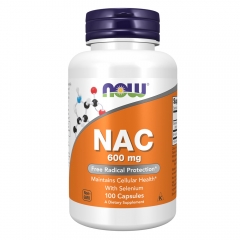
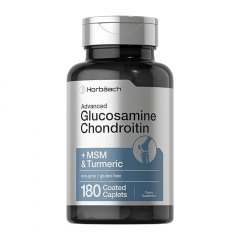

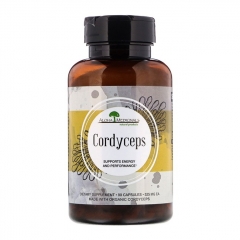
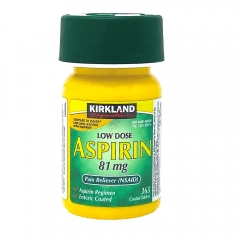

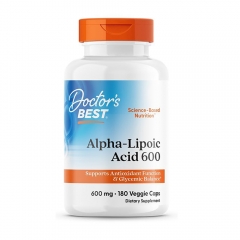

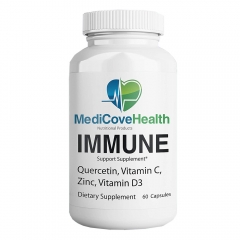

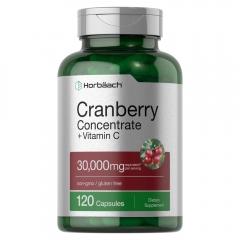



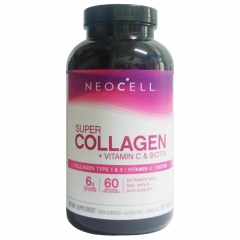
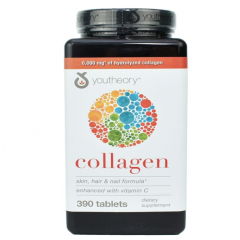

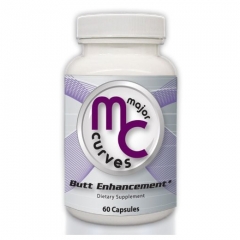

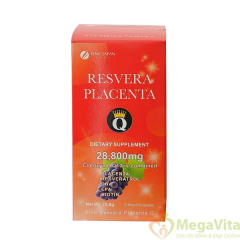



 KHUYẾN MÃI LỚN
KHUYẾN MÃI LỚN Hỗ Trợ Xương Khớp
Hỗ Trợ Xương Khớp Bổ Não & Tăng cường Trí Nhớ
Bổ Não & Tăng cường Trí Nhớ Bổ Sung Collagen & Làm Đẹp
Bổ Sung Collagen & Làm Đẹp Bổ Thận, Mát Gan & Giải Độc
Bổ Thận, Mát Gan & Giải Độc Chăm Sóc Sức khỏe Nam Giới
Chăm Sóc Sức khỏe Nam Giới Chăm Sóc Sức khỏe Nữ Giới
Chăm Sóc Sức khỏe Nữ Giới Chăm sóc Sức khỏe Trẻ Em
Chăm sóc Sức khỏe Trẻ Em Thực Phẩm Giảm Cân, Ăn Kiêng
Thực Phẩm Giảm Cân, Ăn Kiêng Bổ Sung Vitamin & Khoáng Chất
Bổ Sung Vitamin & Khoáng Chất Bổ Tim Mạch, Huyết Áp & Mỡ Máu
Bổ Tim Mạch, Huyết Áp & Mỡ Máu Bổ Mắt & Tăng cường Thị lực
Bổ Mắt & Tăng cường Thị lực Điều Trị Tai Mũi Họng
Điều Trị Tai Mũi Họng Sức Khỏe Hệ Tiêu hóa
Sức Khỏe Hệ Tiêu hóa Chăm Sóc Răng Miệng
Chăm Sóc Răng Miệng Chống Oxy Hóa & Tảo Biển.
Chống Oxy Hóa & Tảo Biển.